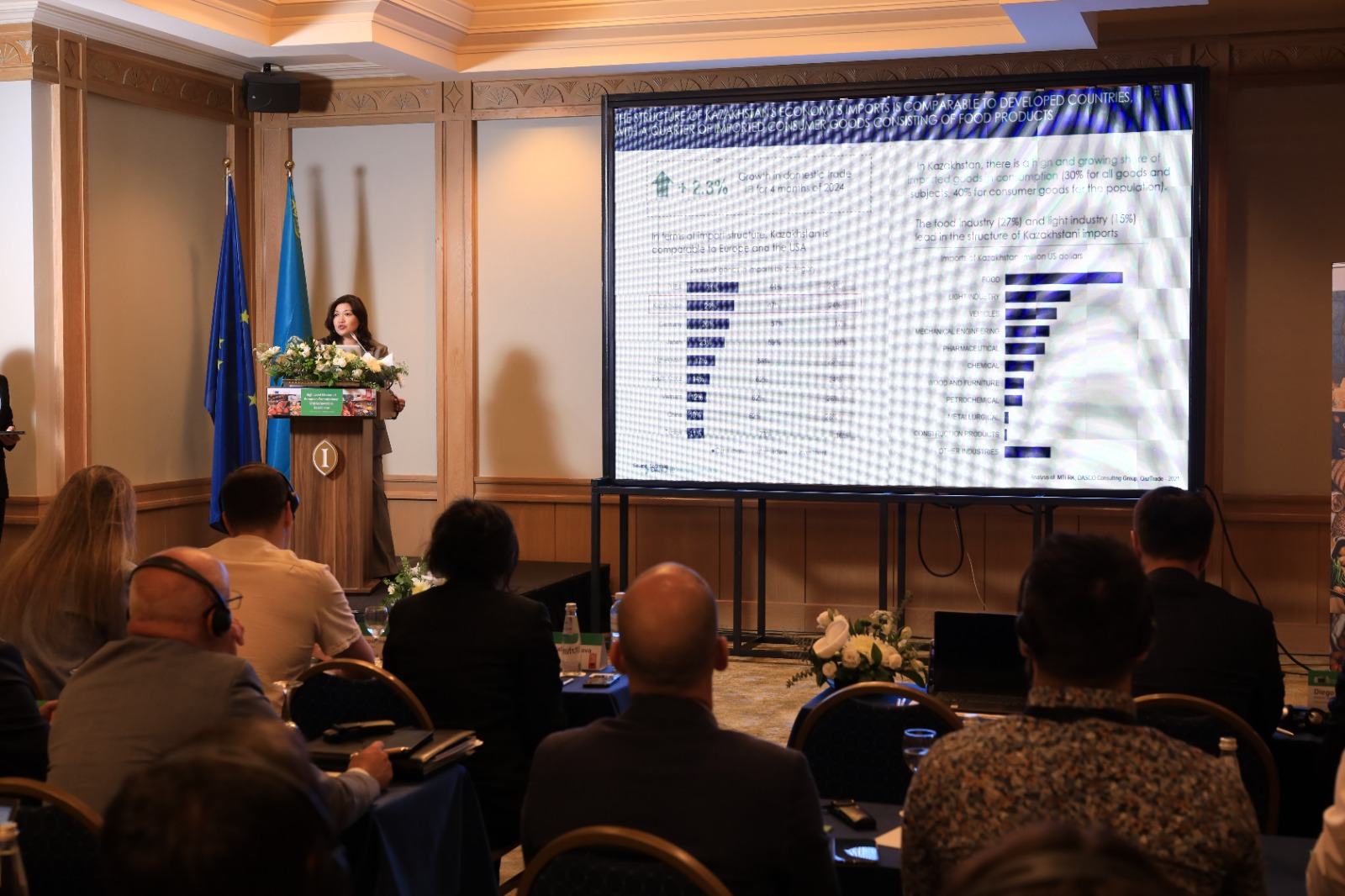Review of the Food Market in the Focus of a Seminar on the Export of Agricultural Products from the EU to Kazakhstan
During the period from 27 to 31 May 2024, a delegation of high-ranking representatives of the agri-food sector of the European Union (EU), accompanied by the European Commissioner for Agriculture, Mr. J. Wojciechowski, visited the cities of Almaty and Astana.
The purpose of this high-level mission is to promote the export of European agricultural food and beverage products in Kazakhstan and expand their presence in the country’s market.
The delegation, consisting of 40 companies, represented the following industries: dairy industry, meat, fruits and vegetables, wines and spirits, vegetable oils, chocolate, confectionery and bakery products, as well as goods such as grains, seeds, animal feed and others.
As part of this visit, various thematic sessions, B2B meetings were held, and a fair was organized. In particular, on May 27 of this year. A seminar on market access was held in Almaty, dedicated to the issues of exporting agri-food products to Kazakhstan. During this event, the specifics of implementing export and registration procedures, labeling, phytosanitary rules and food safety, logistics and food distribution channels, as well as issues of strategic planning and establishing business contacts were discussed.
At a special session on the topic “Introduction to the Food and Beverage Market in Kazakhstan: Current Dynamics, Trends and Challenges for Exporters” from QazTrade, the head of the QazTrade Academy Exporters School and Director of the International Integration Department A. Amirbekova, PhD, spoke.
She noted that the total trade turnover of Kazakhstan with the European Union reached 41.4 billion US dollars. At the same time, the share of food products in the structure of Kazakhstan’s imports of consumer goods is 24%, which is comparable to the indicators of developed countries. In general, in January-April 2024, Kazakhstan experienced an increase in domestic trade turnover by 6.4% compared to the same period last year.
For reference: the growth of retail trade was 12%, wholesale trade – 4%, and the total area of retail space amounted to more than 12 million sq.m., of which 70% (8.8 million sq.m.) accounted for non-stationary trade and 30% (3.8 million sq.m.) for stationary. In the structure of retail trade, food products account for 29%, and in wholesale trade – 21%. At the same time, the crucial role of e-commerce was noted in the context of new models for the development of trade and promotion of food products. Thus, it is predicted that in 2026 the global share of e-commerce will be 27%, and the B2C e-commerce market will grow by 30%, amounting to 8.3 trillion. US dollars.
Next, A. Amirbekova shared with the seminar participants information about the role and contribution of QazTrade to further diversify the economy of Kazakhstan. This is supporting business within the framework of domestic trade and export promotion, as well as protecting the national interests of the country within the framework of trade and economic integration.
At the end of her speech, A. Amirbekova spoke about the educational platform for exporters QazTradeAcademy (qaztradeacademy.kz) and the Trade Portal for Facilitation of Trade Procedures (tradeinfo.kz). Both websites were launched in 2022 by the International Trade Center together with the Ministry of Trade and Integration of the Republic of Kazakhstan and QazTrade with funding from the European Union. The administrator of both platforms is QazTrade. 49 webinars were uploaded to the online platform qaztradeacademy.kz as part of the Smart Export business workshop, as well as 13 specialized modular courses. In turn, a description of trading procedures for more than 80 types of goods has been added to the Trade Portal tradeinfo.kz . In total, the trading portal has more than 6,000 active users.





